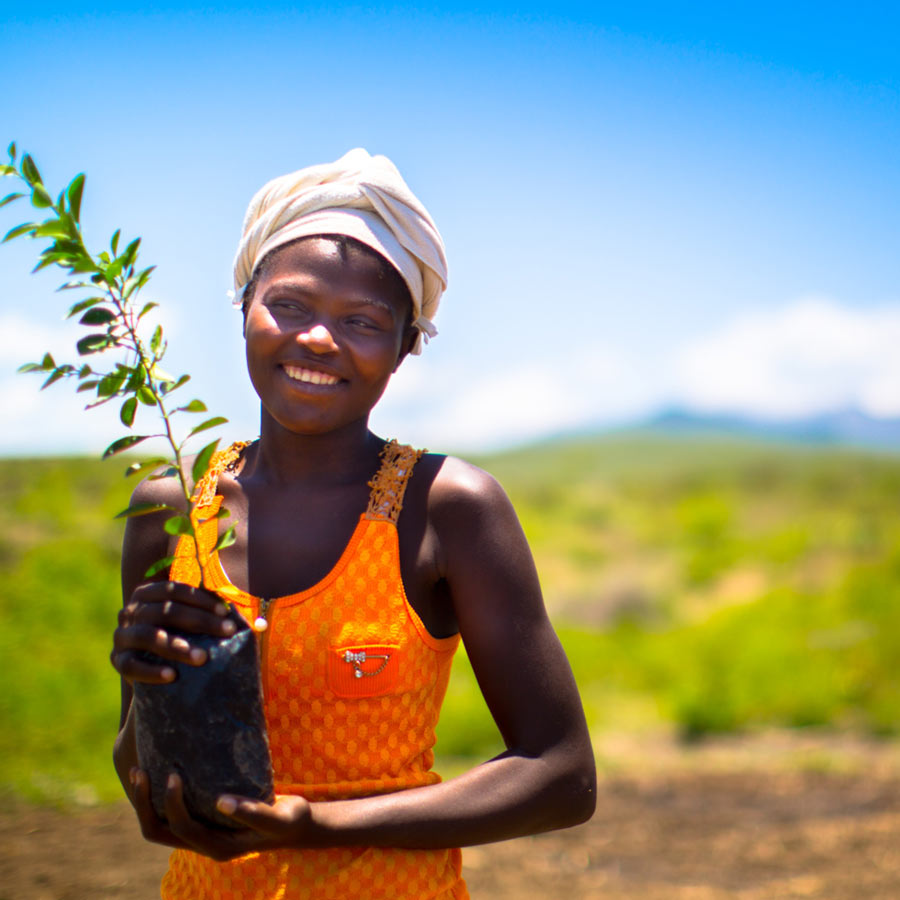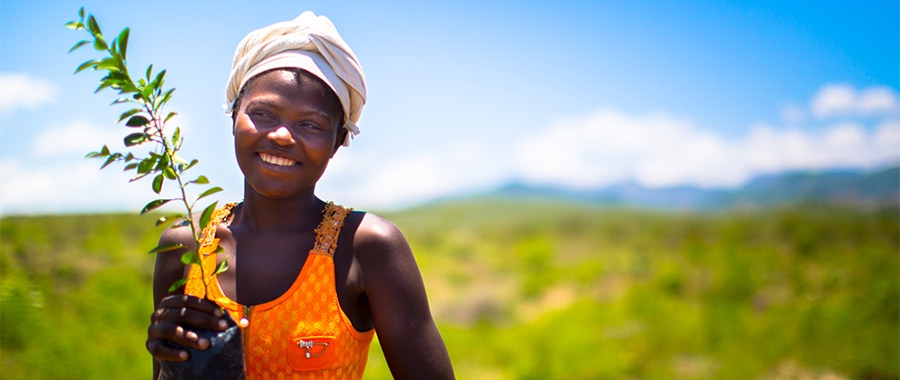The views expressed in our content reflect individual perspectives and do not represent the authoritative views of the Baha'i Faith.
I would like to propose a few specific actions through which you can help shape and be part of the coming smallholder farm revolution. The first involves creating a new worldview category.
Beginning in the late 1980s I was privileged to be part of the Baha’i community’s participation in an interfaith project conceived of and led by Prince Philip, who was then President of World Wildlife Fund-International.
The goal for each participating faith community—Christians, Jews, Muslims, Sikhs, Buddhists, Hindus, Baha’is and others—involved exploring how their respective members could support conservation goals.
1. Changing My Worldview
While the Baha’i writings already included much about respect for nature and the environment, our involvement in this process led to a sustained effort to highlight these teachings and encourage Baha’is to find ways to act on them. For me, the net result made a permanent adjustment to my perspective and my worldview. Conservation had always been on my radar, but now it was further shaped and given importance by my faith community and by the Baha’i writings themselves:
Nature in its essence is the embodiment of My Name, the Maker, the Creator. Its manifestations are diversified by varying causes, and in this diversity there are signs for men of discernment. Nature is God’s Will and is its expression in and through the contingent world. It is a dispensation of Providence ordained by the Ordainer, the All-Wise. Were anyone to affirm that it is the Will of God as manifested in the world of being, no one should question this assertion. It is endowed with a power whose reality men of learning fail to grasp. Indeed a man of insight can perceive naught therein save the effulgent splendour of Our Name, the Creator. – Baha’u’llah, Tablets of Baha’u’llah, p. 142.
With that framework in mind—one in which the entirety of nature is understood as the will of God—I began to see a different view of the world, one suffused with not only organic growth but with spiritual growth.
Today, what began as that WWF initiative now lives on as the independent Alliance of Religions and Conservation. So I would like to suggest that a similar interfaith process be initiated around smallholder farming, with an emphasis on women smallholders. I see the need for it because it is hard to be supportive of smallholders if they aren’t already part of your worldview.
To bolster that change in worldview, I would also like to mention a new biography of my first mentor and fellow Baha’i, the late Richard St. Barbe Baker, also known as “the Man of the Trees.” I mention this book, published by the University of Regina Press, because St. Barbe, as his friends called him, was a genius at understanding the impact of worldviews. He was able to seamlessly integrate tree planting and conservation into the cultural DNA of millions of people from all walks of life and all corners of the globe. The author is my good friend Paul Hanley, and his book can help reframe your worldview.
2. Developing Disruptive Solutions
Next, I want to make a case for developing and supporting what I would call disruptive solutions. The time has come to create and support truly innovative agricultural and environmental solutions that can be scaled and replicated in many places around the world. Business as usual has largely failed smallholder farmers—and frankly, development assistance in its current form has largely failed smallholder farmers, too. My own experience of one disruptive solution, which began in Haiti, may hold some useful lessons in this regard.
 Haiti is seriously deforested. At the same time its half a million smallholder farms under-perform, due in large part to the lack of trees, which leads to flooding and soil erosion. The resulting low yields put pressure on farmers to supplement their income by cutting trees to produce charcoal. The result: a self-reinforcing downward spiral, both for the environment and the farmers.
Haiti is seriously deforested. At the same time its half a million smallholder farms under-perform, due in large part to the lack of trees, which leads to flooding and soil erosion. The resulting low yields put pressure on farmers to supplement their income by cutting trees to produce charcoal. The result: a self-reinforcing downward spiral, both for the environment and the farmers.
Some years ago I teamed up with Haitian agronomist Timote Georges, and we set out to plant trees. Timote draws as much on his strong Christian faith as I do on the Baha’i Faith. We began by approaching smallholder farmers to do the actual planting of the trees, but initially they weren’t interested, even when we offered the trees for free. We then switched direction and asked what the farmers needed, thinking this might give a clue as to how we could get them interested in planting trees.
The answers distilled down to three things:
- they needed better quality crop seeds, but these were too expensive
- they needed good hand tools, but these were also expensive
- they desperately needed training to improve their agricultural techniques, but none was available.
Out of this came the idea of tree currency: farmers growing, transplanting and looking after trees in order to earn credits they could exchange for non-hybrid, open pollinated crop seeds; good hand tools like hoes, shovels and machetes; and training in organic agriculture.
What we found when these services became available was that crop yields went up a minimum of 40% and household income between 50 to 100%. Everything, tree nurseries and agriculture, runs entirely on organic principles. This means, for some 6,000 Haitian farmers who now belong to the Smallholder Farmers Alliance (SFA), trees have more worth in the ground than cut for charcoal—and their farms have a sustainable path into the future.

We now have 30 tree nurseries around the country, and to date the farmers have planted over 7 million trees. In one area north of the city of Gonaives, farmers have reforested several sites which will eventually be connected to form the first green belt of its kind in Haiti.
Farmers in Haiti now use tree currency for more than just seeds, tools and training. They use their credits for participation in seed banks, to obtain livestock, for adult literacy classes and water source upgrades. Tree currency also allows farmers to take part in and benefit from kombits, which is a Haitian creole word for neighbors volunteering to help each other plant and harvest—a long tradition in the country which the pressure of extreme poverty had eroded over time.
In the final installment in this series of essays, we’ll focus specifically on what women can do to advance the smallholder farm revolution.
This essay is adapted from a talk by Hugh Locke to the Parliament of the World’s Religions that took place in Toronto in November, 2018.
















Comments
Sign in or create an account
Continue with Googleor